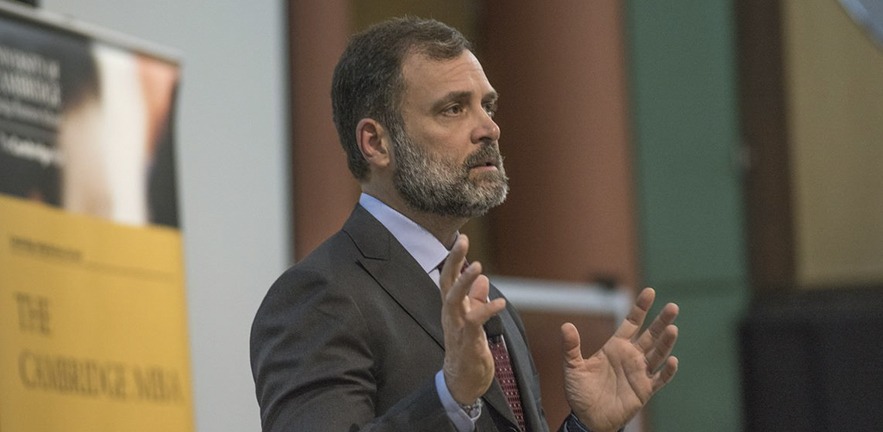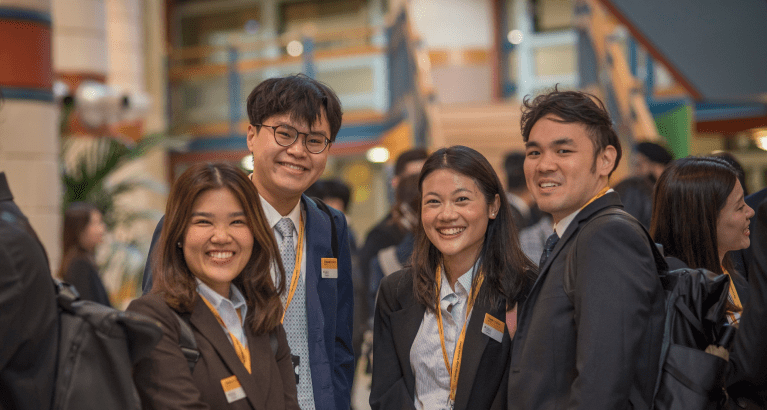People around the world need to find a way of listening compassionately to new concerns in a 21st century that has been transformed by the shift of production away from democratic countries and toward China, Indian politician Rahul Gandhi said in a lecture to Cambridge MBA students at Cambridge Judge Business School, where he is a Fellow.
“The art of listening” when done consistently and diligently is “very powerful”, said Mr Gandhi, a leading figure of the Indian National Congress (Congress Party) and University of Cambridge alumnus, in a 28 February lecture entitled ‘Learning to Listen in the 21st Century’.
Impact of the shift in global manufacturing
But he said the decline in recent decades of manufacturing in democratic countries including India and the US, as production has shifted to China, has produced mass inequality and associated anger that need urgent attention and dialogue.
“We simply cannot afford a planet that doesn’t produce under democratic systems,” he told the MBA students. “So we need new thinking about how you produce in a democratic environment compared to a coercive environment”, and a “negotiation about this”.
Rahul Gandhi from long lineage of global leaders
Mr Gandhi was introduced to the MBA audience by Kamal Munir, Pro-Vice-Chancellor at the University of Cambridge and Professor of Strategy and Policy at Cambridge Judge Business School, who said the speaker comes from a “long lineage of global leaders”.
Rahul Gandhi is the great grandson of Jawaharlal Nehru, who was the first Prime Minister of Independent India (also a Cambridge alumnus and after whom the Cambridge Judge Chair in Indian Business and Enterprise is named), the grandson of Indira Gandhi (the third Prime Minister of Independent India), and son of Rajiv Gandhi (also a Cambridge alumnus) who was the sixth Prime Minister of Independent India.
Mr Gandhi’s lecture was divided into 3 parts:
- An outline of the Bharat Jodo Yatra, a 4,081 km walk he led through 14 Indian states from September 2022 to January 2023 to draw attention to prejudice, unemployment and growing inequality in India
- A look at the “Two Divergent Perspectives” of the US and China since World War II and especially since the 1991 collapse of the Soviet Union. He said that in addition to shedding manufacturing jobs the US had become less open after 11 September 2001, while China “idolises harmony” through organisation around the Chinese Communist Party
- “Imperative for a Global Conversation” in which he knitted the themes together in a call for a new type of receptiveness to various viewpoints – explaining that a yatra is a journey or pilgrimage in which people “shut themselves down so they can listen to others” .
The Cambridge MBA programme is for globally minded, successful individuals who want to understand the complexities of business and society, so Cambridge Judge Business School thanks Mr Gandhi for sharing his experience and insight on global economics and policy-making.





